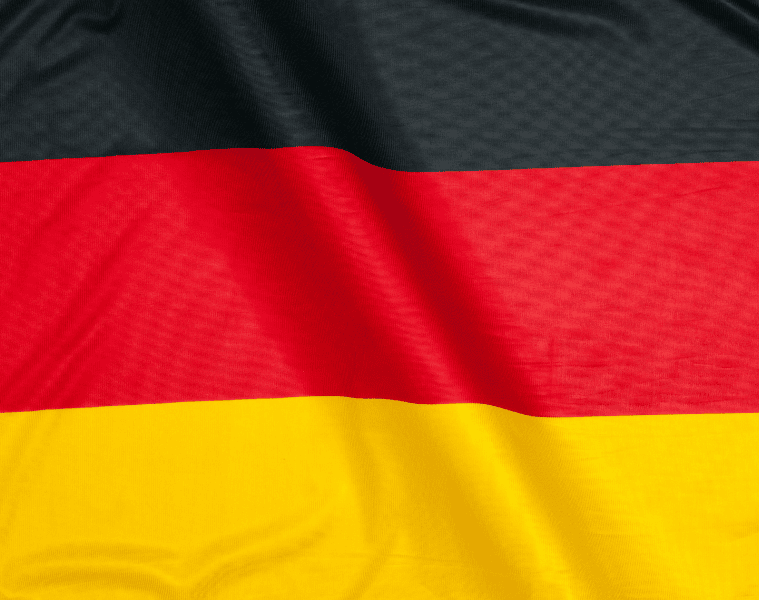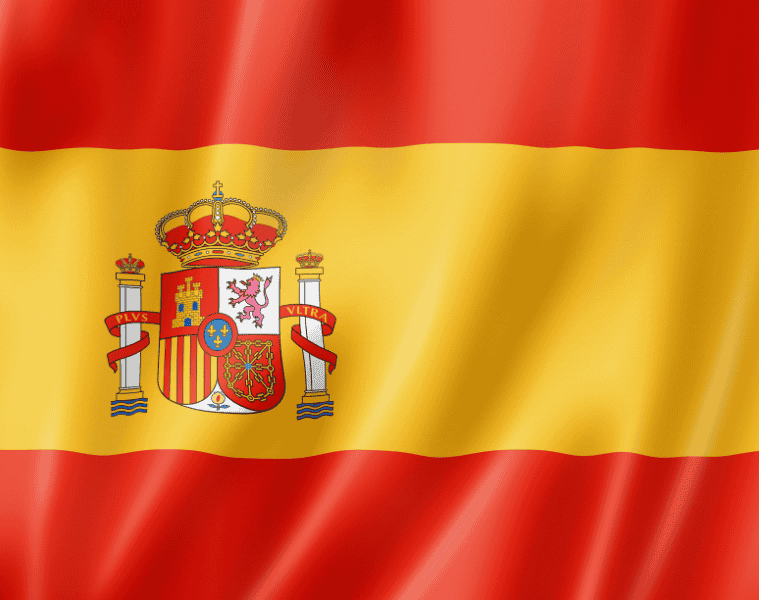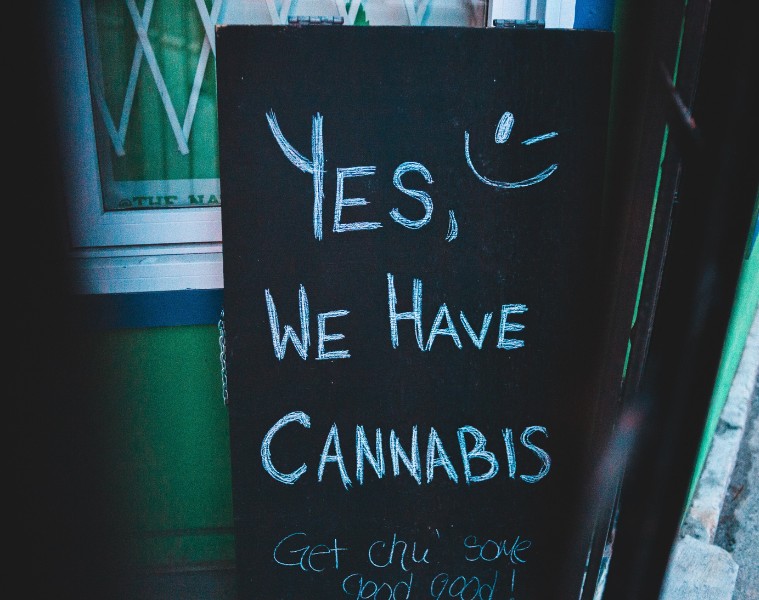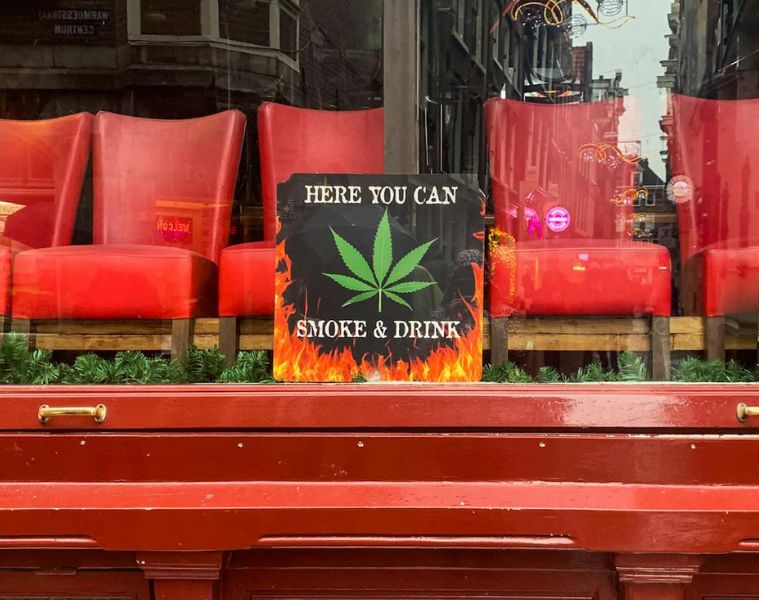Countries Where Weed Is Legal and Blossoming
Cannabis legalization is spreading in ways no one could have ever predicted. Some countries are quietly embracing the plant, while others are making headlines with bold moves.

Disclaimer
The information provided in this article is for general informational and educational purposes only and does not constitute legal advice. Cannabis laws can change quickly with little public awareness, and enforcement practices may differ for residents and visitors. Travellers should always verify current rules with official government sources or local authorities before possessing, using, or purchasing cannabis.
Introduction
Cannabis laws are surprisingly changing fast around the world. In the majority of countries, the plant remains an underground activity, but when you take a step back and look at the weed laws worldwide, you will notice that a lot of countries are starting to have an open mind when it comes to cannabis.
Many nations have opened up programs focused on using the plant medically as an alternative to traditional treatments, a large number of countries have implemented decriminalization laws so they can focus on prevention rather than punishment, and a handful have gone all the way and fully legalized weed for recreational enjoyment.
In this post, I'm going to highlight the countries where lighting up without fear of retribution is an everyday occurrence. From Uruguay, which became the first country to make recreational cannabis legal, to newer additions like Germany, which just legalized the plant earlier this year on April 1st, 2025.
If you're interested in the international cannabis laws from where it's legal, illegal, decriminalized, and more, check out our handy cannabis legalization map. It breaks down the legal status of cannabis in every country in the world, covering recreational and medical use, CBD laws, and decriminalization policies. It's a great way to see how far legalization has come and where it might be headed next.
Now, let's take a closer look at the countries where cannabis is legal for recreational use and explore how each nation is shaping its own path forward.
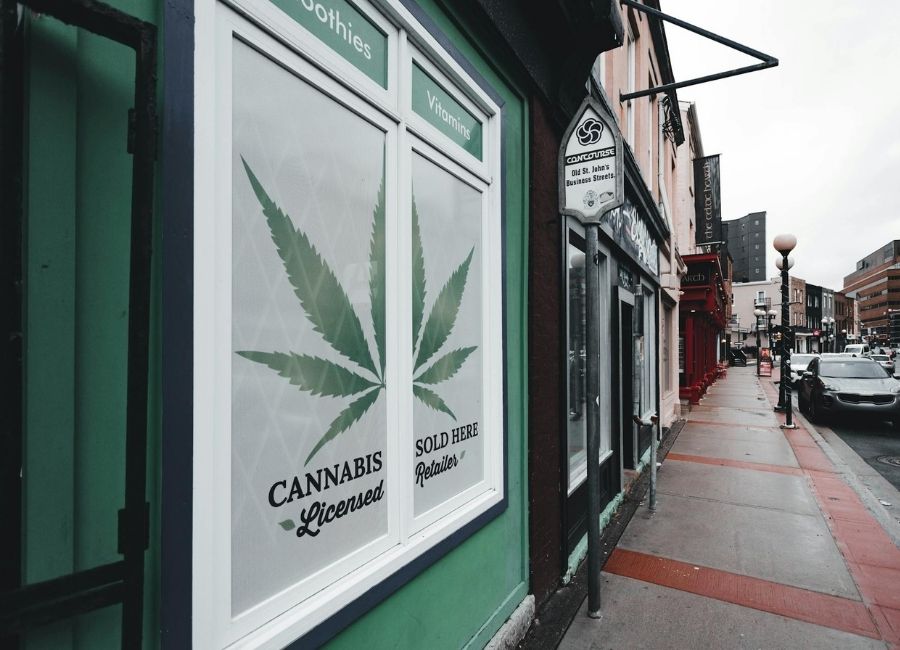
Canada
Canada joined the cannabis club in 2018, making it the second country to legalize cannabis across the board. When you look at the weed laws for countries around the world, you will notice that Canada's are probably the most relaxed. The law lets individuals over the legal age to possess up to 30 grams of dried cannabis in public, buy a wide range of products from licensed stores, get cannabis delivered to their door, and grow up to four weed plants in their homes.
Canada's approach to legalization is very relaxed yet organized, and these laws don't stop at Canada's borders. They also apply to visitors, making Canada one of the most weed-friendly countries for tourists.
Czech Republic
The Czech Republic has long been known for its relaxed approach towards cannabis, and now the country is taking things a little further. While the possession of 10 grams of cannabis and the cultivation of five plants in the home have been decriminalized for years, the country is now taking the next big step.
Starting from January 1st, 2026, cannabis in the Czech Republic will be legal for recreational use, allowing individuals over the age of 21 to possess up to 25 grams of cannabis in public, 100 grams in the home, and grow up to three weed plants in their homes, all for their personal use.
This shift builds on the Czech Republic's already chill approach and aims to bring more structure and safety to something many people have been enjoying quietly for years.
Germany
Germany officially legalized recreational cannabis on April 1st, 2025, making it the latest European country to embrace the plant. Now, citizens and residents who have been living in the country for longer than 6 months can join cannabis social clubs, legally possess up to 25 grams of cannabis in public, 50 grams in their homes, and grow up to three weed plants in their homes.
These laws only apply to citizens and residents, not tourists, I'm sorry to say. However, the German government are planning on testing commercial sales in a few cities. Depending on how these trials go, we might see an approach similar to Canada's, and Germany may open its doors to visitors wanting to explore the country's vibrant culture and stunning landscapes with some of their favorite flavors.
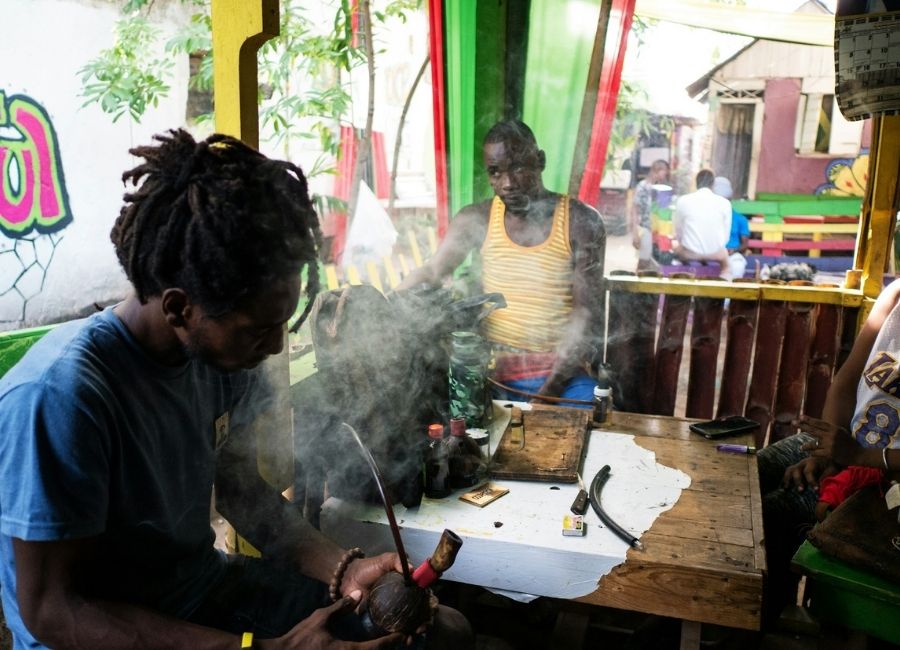
Jamaica
Jamaica's connection to cannabis runs deep, and while many assume ganja has always been legal on the island, it actually hasn't, and was only just decriminalized back in 2015, opening the door to a more relaxed and realistic approach to personal use.
Although possessing less than 2 ounces of weed in public without a valid medical card can result in a fine of J$500 (around $3.15), individuals over the age of 18 are allowed to consume cannabis in private, and every household can grow up to five weed plants. Public use is still prohibited, but within private homes, cannabis use is widely accepted and woven into the laid-back Jamaican lifestyle.
Luxembourg
Luxembourg may be a tiny country, but it made some big moves when it came to cannabis. In 2023, the government allowed individuals over the age of 18 to grow up to four weed plants in their homes for personal use, giving people the freedom to enjoy cannabis without fear of penalties.
While cannabis sales are off the table, the government's approach focuses more on personal responsibility and reducing the influence of the underground market.
Malta
Malta became the first country in the European Union to legalize recreational cannabis back in December 2021, allowing citizens and residents to grow up to four weed plants in their homes, possess up to 50 grams of cannabis in their homes, and possess up to 7 grams in public for their own personal use.
There are no over-the-counter cannabis sales in Malta, but citizens and residents can join non-profit cannabis associations, where members can collectively grow and share their harvests. This approach focused on striking a balance between safe access and sensible regulation, offering a solution that matches the island's easy going vibe.
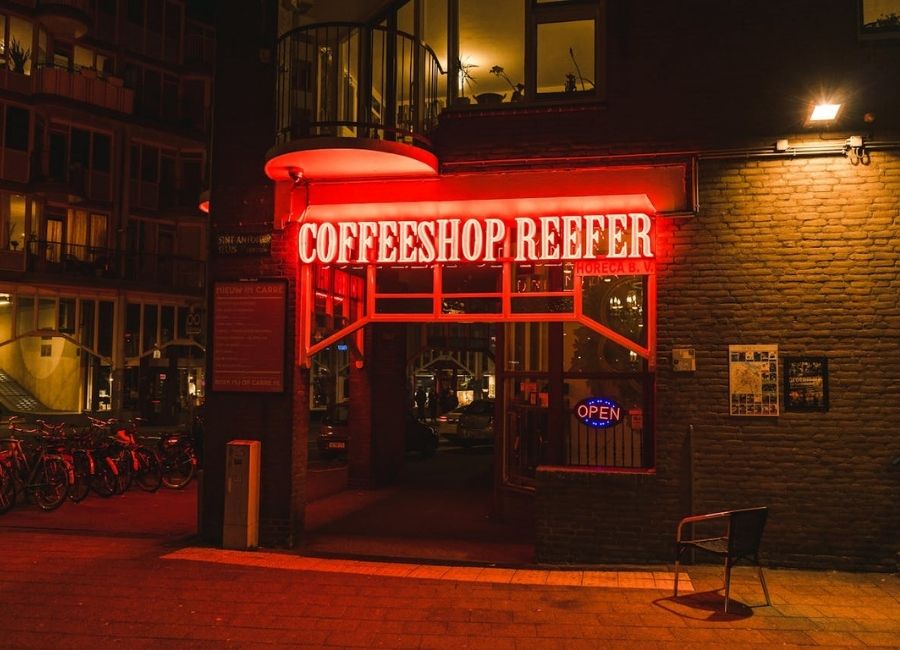
Netherlands
The Netherlands doesn't need an introduction when it comes to the global cannabis culture, thanks mainly to Amsterdam's famous coffee shops and its open, tolerant attitude toward weed. But the funny thing is that weed isn't 100% legal in the Netherlands, it's actually decriminalized and tolerated under the country's "gedoogbeleid" policy.
I know this may seem confusing, but it basically means that individuals over the age of 18 can possess no more than 5 grams of cannabis and grow no more than five weed plants in their homes, and if found in possession of either they the product will be confiscated.
Technically, over-the-counter weed sales are illegal in the Netherlands, but licensed coffee shops can thrive as long as they follow strict government rules. They can sell up to 5 grams of cannabis per person, per day, and they can't do any advertising or cause any public disturbance. And while coffee shops can operate if they follow the strict rules, they still have to worry that anything can happen at any time because storing and cultivating large amounts of cannabis is illegal.
So, while you can walk into a coffee shop, browse a menu, and enjoy your purchase without worry, the shop itself operates on a delicate cushion of long-standing tolerance.
South Africa
In 2018, South Africa took a significant step toward cannabis freedom when it became the first African country to legalize cannabis for personal use. Now individuals over the age of 18 can possess up to 100 grams of cannabis in public, 600 grams in private property, and grow up to four weed plants in private for their own personal use.
This landmark decision didn't create a commercial market or allow public use, but it did give people the right to enjoy weed at home without the fear of going to prison.
Spain
Spain has a long and rich history with cannabis, so it wasn't a surprise when it was announced that citizens and residents were allowed to possess up to 100 grams of cannabis and grow their own weed plants as long as it's all in a private residence. And although the public possession of cannabis can lead to very hefty fines, Spain still gave their citizens and residents a solution that prioritizes the personal freedom of using the plant.
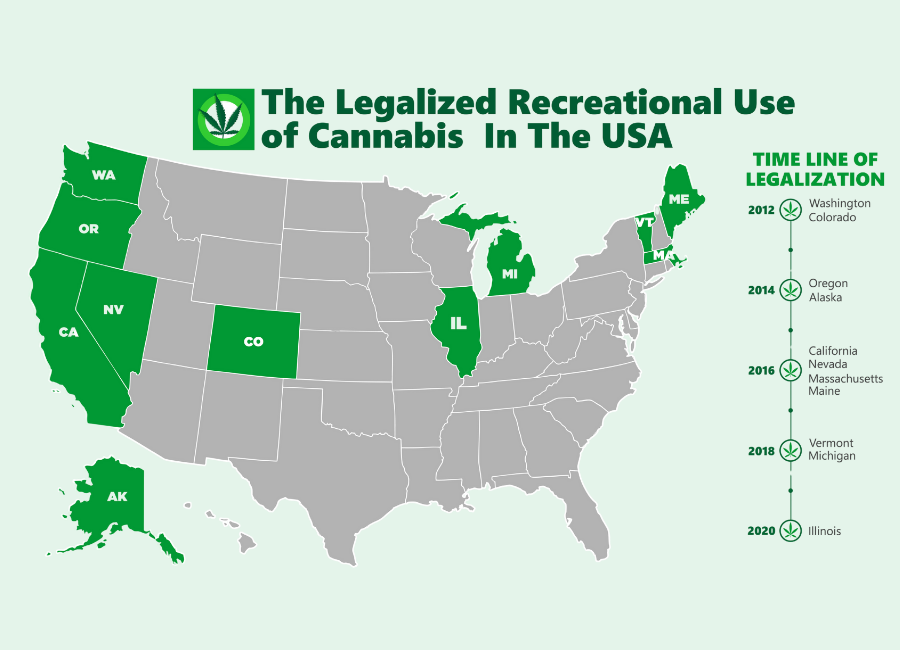
United States (Depending on State)
The United States has one of the most interesting cannabis stories in the world because legalization didn't happen all at once; it started state by state. The movement kicked off in 2012 when Colorado and Washington became the first states to legalize recreational weed, and this is what set the tone for what would become a nationwide shift.
Two years later, the first legal sale took place in Denver, Colorado, marking the first milestone for both the state and cannabis culture as a whole. Since then, more and more states have followed suit, each shaping its own rules and markets in different ways.
If you're curious about which states have legalized recreational cannabis, what their laws look like, and how much you can possess or grow, you can find all that info in my post U.S. States Where Recreational Weed Is Legal. It breaks down every legal state and shows you the complete U.S. picture.
Uruguay
Uruguay made cannabis history in 2013 when it became the first country in the world to fully legalize recreational cannabis, paving the way for a new era of responsible and regulated use. Now, citizens and permanent residents over the age of 18 can legally grow up to 6 weed plants in their home, possess up to 40 grams, join cannabis clubs, and even purchase cannabis from licensed pharmacies for their personal use.
Uruguay's simple but very effective approach balances freedom with structure, setting the example for other nations exploring similar reforms.
Conclusion
Recreational cannabis is slowly but steadily becoming a regular part of life in many countries around the world, each with its own unique approach. Some places, like Canada and Uruguay, took the big leap with regulated sales, while others, like Spain and South Africa, focus on private consumption and personal cultivation.





